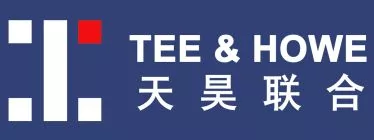This Method is drafted by China's National Medical Products Administration in conjunction with the China National IP Administration, and was published for public's comments on 11 September 2020 in the link below. The deadline to provide comments is 25 October 2020.
The draft Method has 15 articles.
https://www.nmpa.gov.cn/xxgk/ggtg/qtggtg/20200911175627186.html
Please refer to my summary below:
- The drug originator is required to register patent information related to the drug at the NMPA in order to enjoy protection. (Article 2).
- The drug originator could update patent information, within 30 days from any change (patent granted, change of patentee, and so on) happened. (Articles 3 and 4).
- For a chemical drug, patents directed to the active ingredient (chemical compound), drug composition, and use (Swiss type claims I suppose, as a use of medicine claim is considered to be a method of treatment claim in China, which is not patentable) could be registered. (Article 5)
- For a bio drug, it appears that only patent directed to the sequence listing could be registered. (Article 12)
- For a Chinese medicine drug, in addition to drug composition and use patents, patents directed to Chinese medicine extraction (does this extraction method, and chemical compound identified?) could be registered. (Article 12)
- Similar to the US, generic applicant has to make one of the
four declarations as below: (Article 6)
- That there is no patent information registered related to the drug.
- That the patent(s) has already expired or declared invalid.
- The date on which the patent(s) will expire, and that generic applicant promises that the generic drug will not go on the market until the expiry of the patent(s).
- That the patent(s) is not infringed or is invalid.
- The drug originator could challenge the declaration made by the generic applicant within 45 days from the date of the publication of the application of the drug approval by the generic applicant published by the NMPA, either to a People's Court or to the CNIPA. The drug originator is required to submit a copy of the case acceptance notice to the NMPA within 10 days. Otherwise the NMPA will process the generic drug approval application. (Article 7)
- For a chemical drug, from the date of the case acceptance as above, the NMPA will set a 9-months waiting period (not clear to wait for what, not to issue the drug approval I suppose?), but the NMPA will not stop technical evaluation during this waiting period. (Article 8)
- For a chemical drug, declarations a) and b) will be processed as normal. For declaration c), the drug approval granted should be marked with that the drug could only be sold in the market after the patent(s) expires (Would the expiry date(s) be specified?). (Article 9)
- For a chemical drug, for declaration d), if the patent(s) was found to be infringed, NMPA's administrative approval process would be initiated 20 days before the patent(s) expired. Otherwise, including if the decision from the court of the CNIPA was not issued within the 9-months waiting period (Article 8 above) or the decision stopping the drug approval is overruled (as a final decision, which in such cases typically at the Supreme Court), the drug approval will be processed as normal. (Article 10)
- For a chemical drug, the first successful generic challenger will be awarded a 12-months reward period from the date of the first generic drug approval. Specifically, the NMPA will not grant another drug approval to other generic applicants in this 12-months reward period. (Article 11).
- For a bio drug or Chinese medicine drug, similar mechanisms i)
and j) as above apply, but with the following differences:
- Drug approval will be granted regardless whether the patent(s) is found to have been infringed. However, if the infringing decision was made before the drug approval process is completed, the drug approval granted should be marked with that the drug could only be sold in the market after the patent(s) expires.
- NO 9-monhts waiting period.
- NO 12-months monopoly period for the first successful generic challenger.
- After a drug approval is granted but later found to have infringed a patent(s), the drug approval granted remains in force. (Article 14)
My quick comments are as below:
- Further clarifications are required on my above questions, and assumptions.
- It is unclear why the handling mechanisms are different for chemical, bio and Chinese medicine drugs. For example, why drug composition and use patents could not be registered for bio drugs? Why there is no 9-months waiting period for bio and Chinese medicine drugs? I suggest treating them equally.
- While the requirement in g) seems reasonable, in many occasions the case may not be accepted by a court or the CNIPA within 45 days, particularly at the beginning. I suggest extending this to 90 days, particularly for foreign patentees whom would experience more difficulties in dealing with formalities like Power of Attorney. Further, I suggest counting from the first date of submission of the case, but not the date of the case acceptance. There are cases that take 9 months (or more) for a court to accept in China.
- I can immediately see that a lot of games could be played on 8. and 10. to delay the decision beyond 9 months, particularly in light of 13. Therefore, I suggest increasing the 9-month waiting period, or and/or suspend this waiting period in conjunction with the suspension of the court/CNIPA procedure.
- The 12-month reward period to the first generic challenger may be too short, considering the vast effort invested into the challenge if declaration d) is submitted. Could this be increased to 24 months if declaration d) is submitted? I know my friends working in the big pharmaceutical companies may not be happy with this suggestion.
Any further thoughts will be welcomed.
The content of this article is intended to provide a general guide to the subject matter. Specialist advice should be sought about your specific circumstances.

